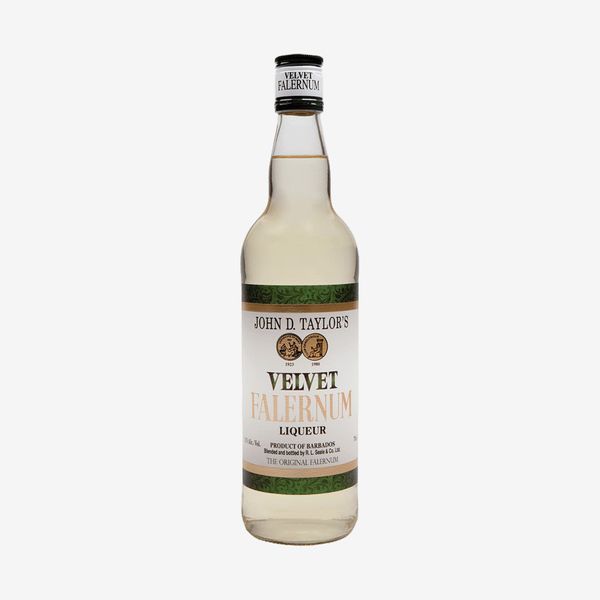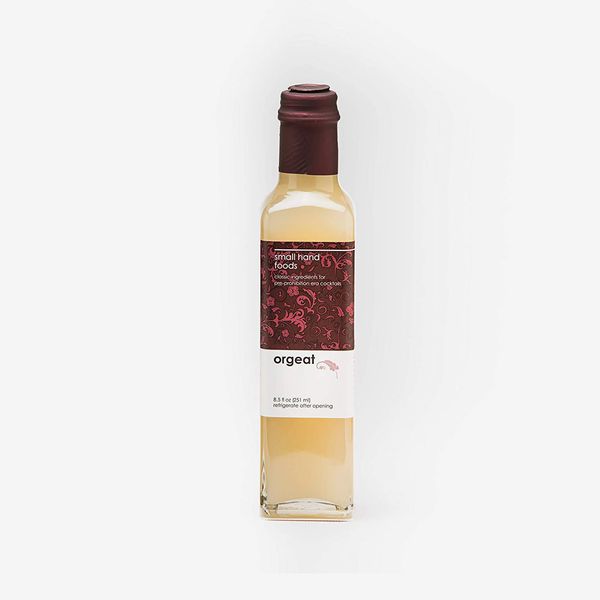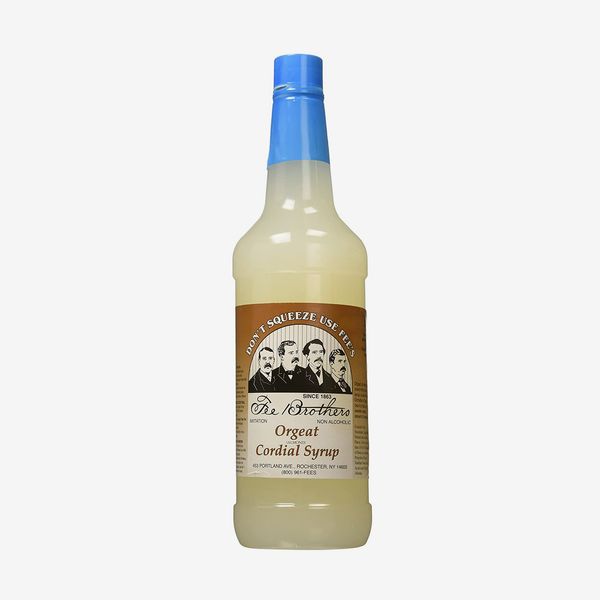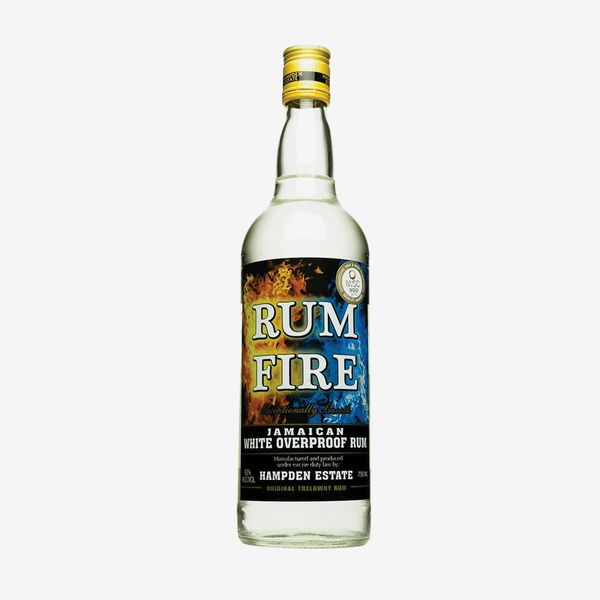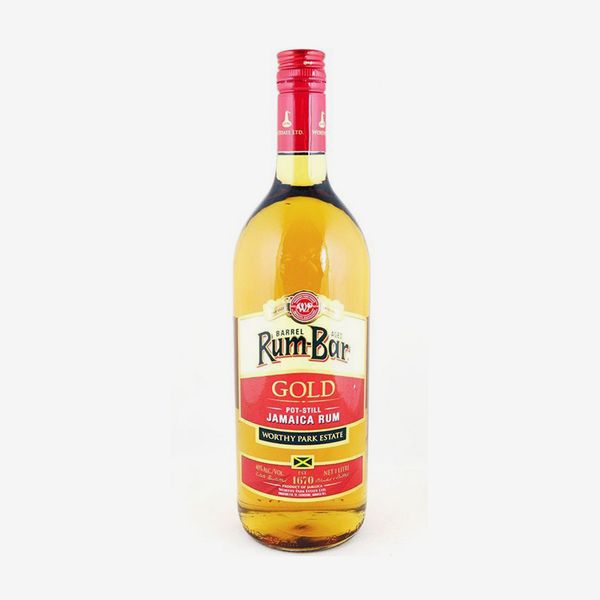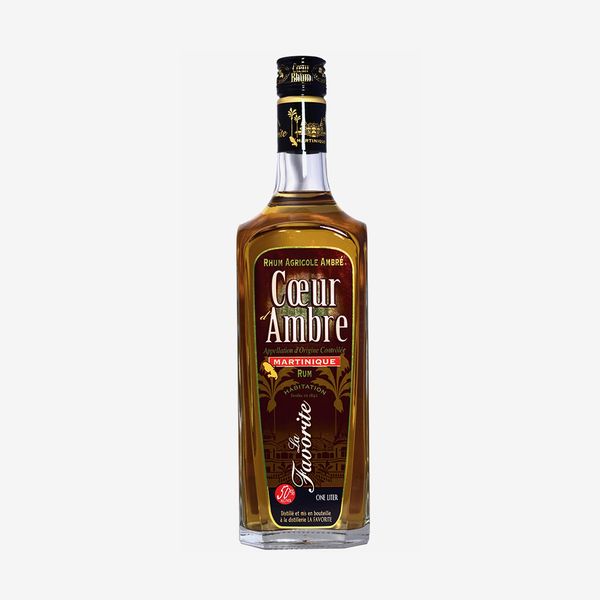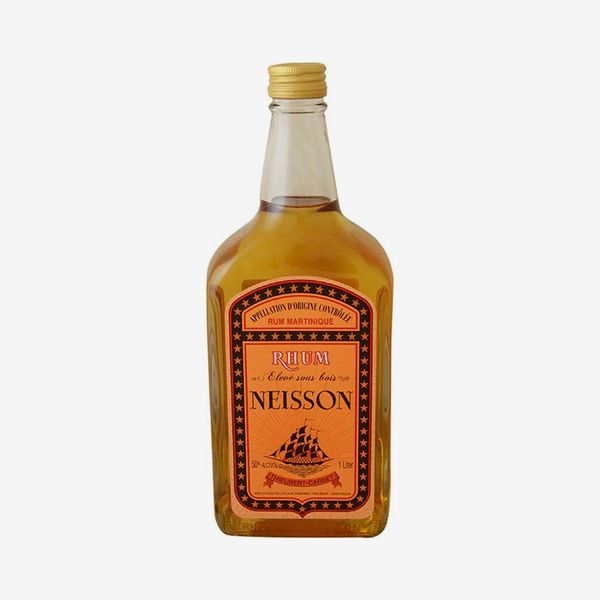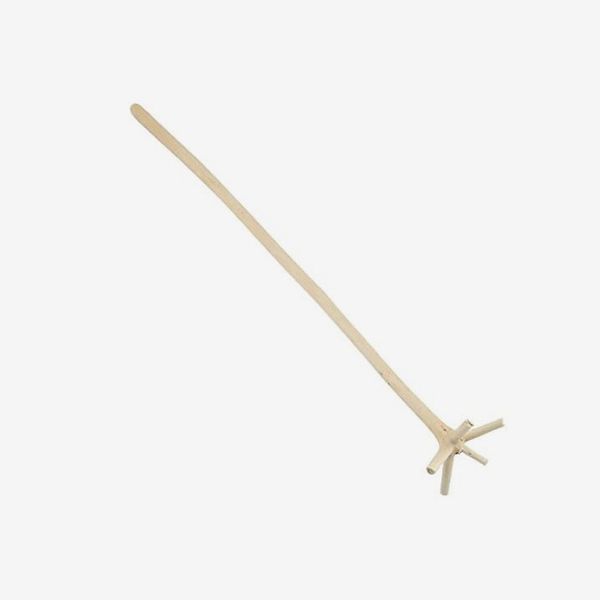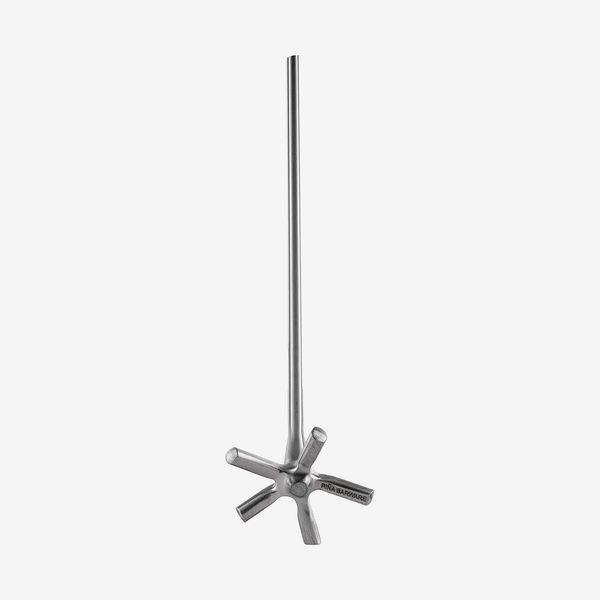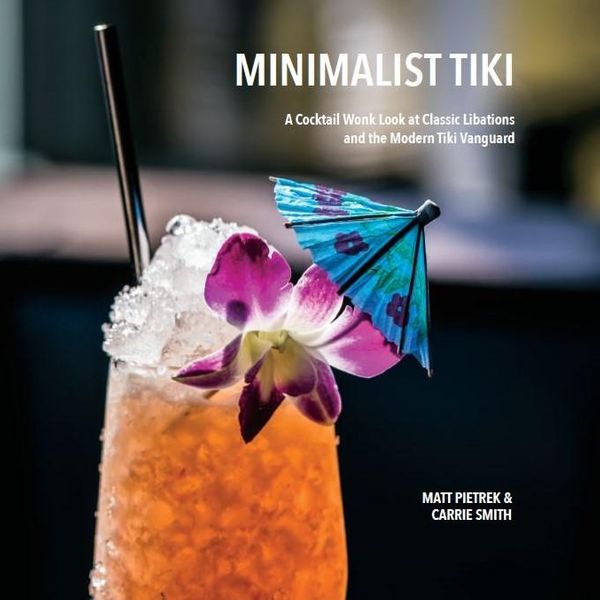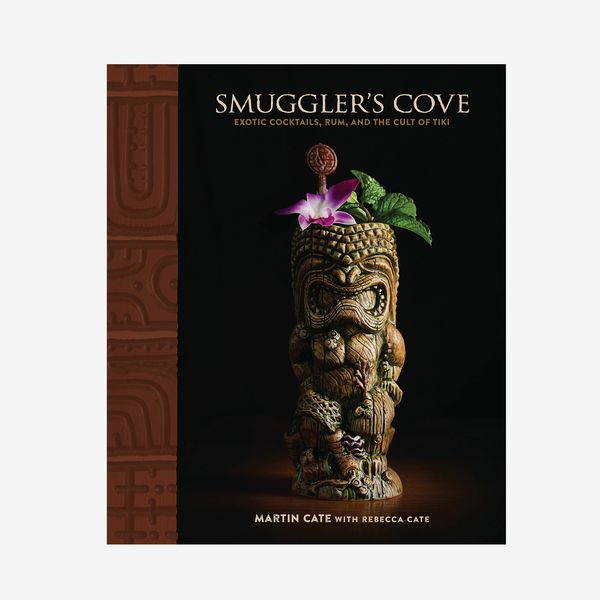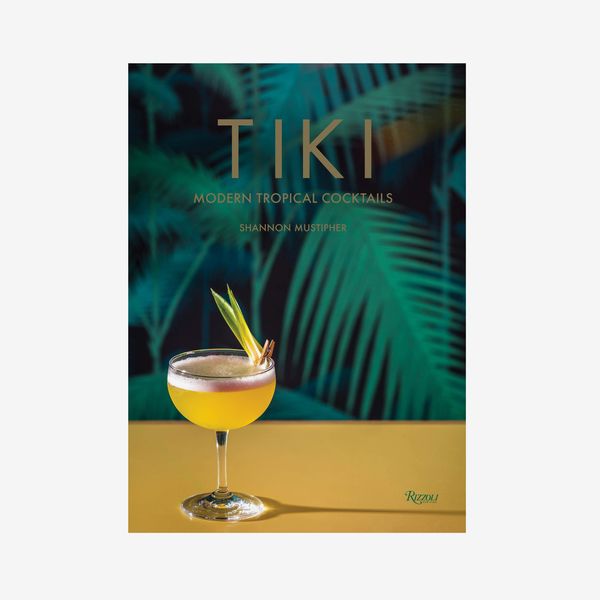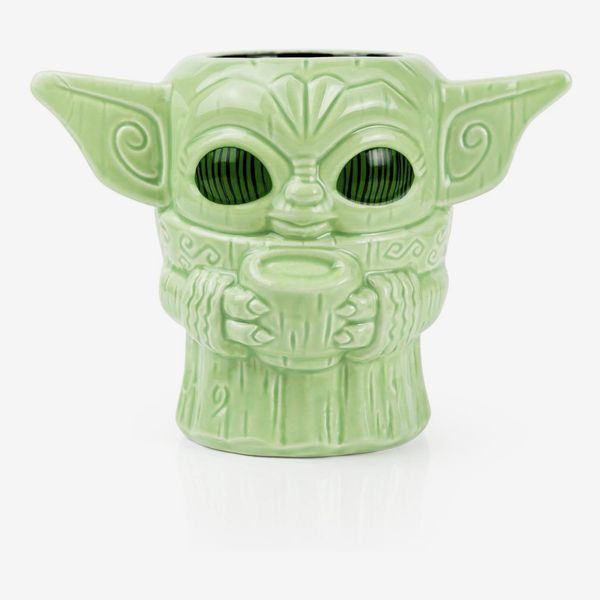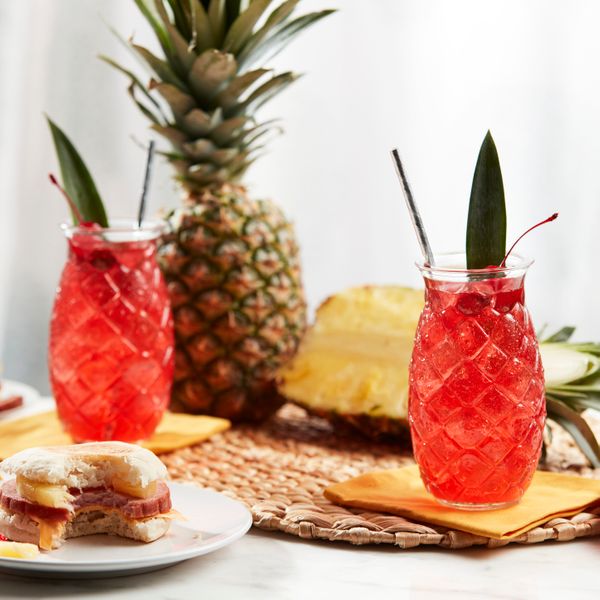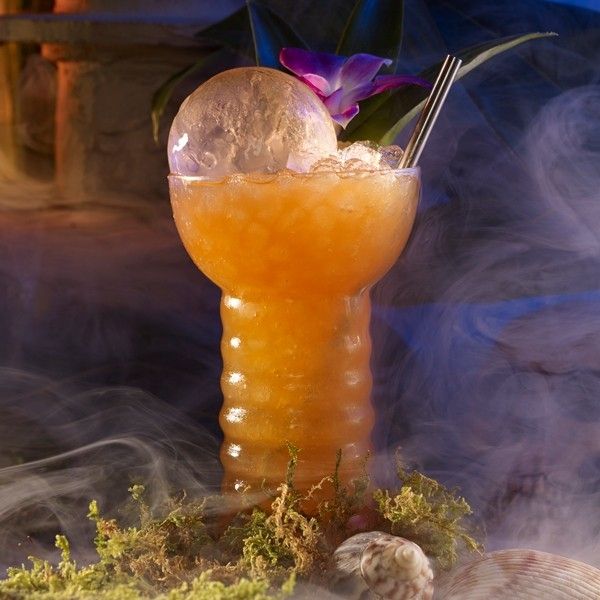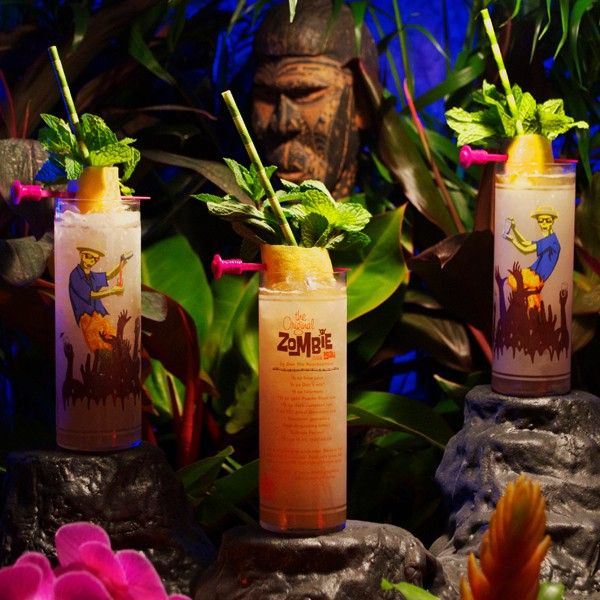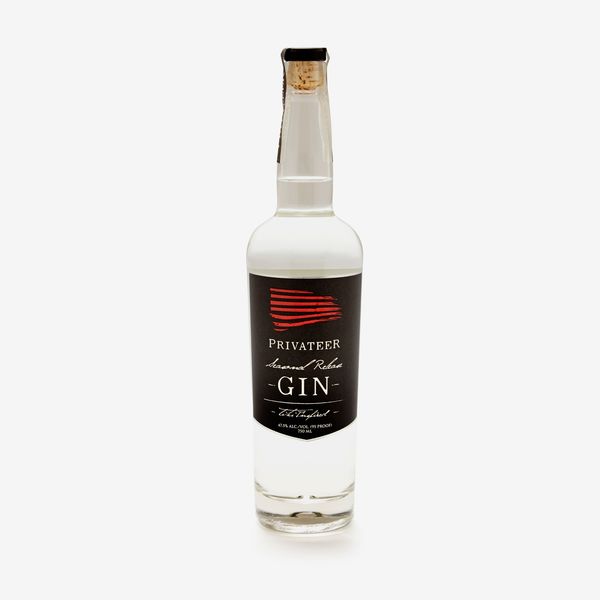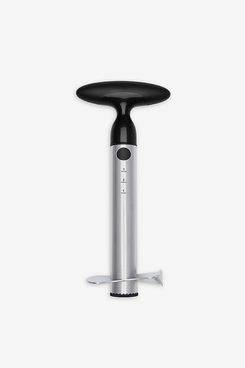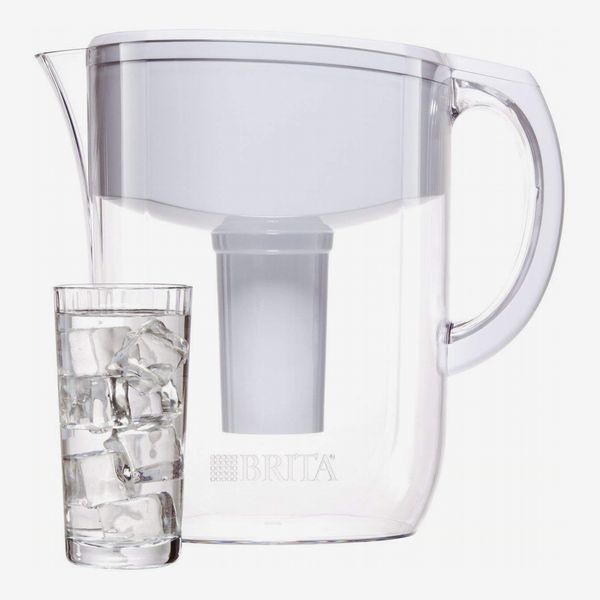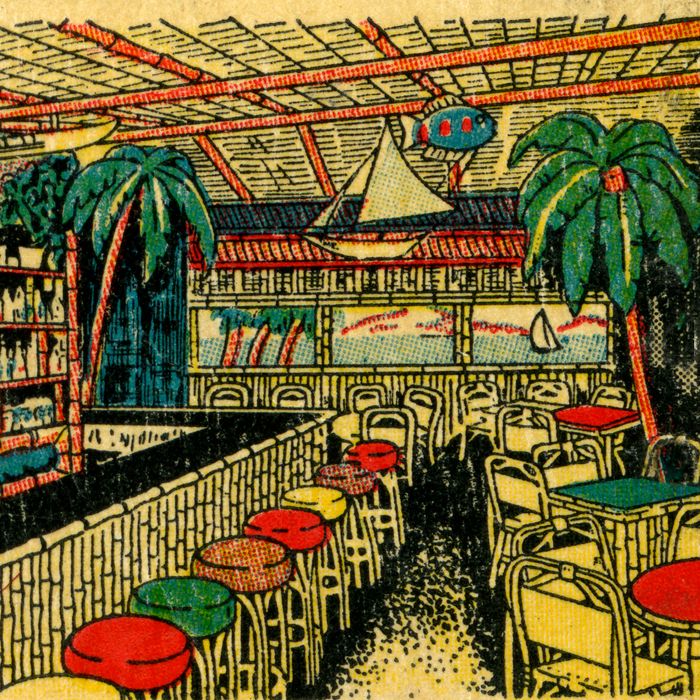
Photo: Jim Heimann Collection/Getty Images
As author and editor Chloe Frechette details in her article “Does Anyone Really Know What Tiki Is?” the arrival of the tiki aesthetic and a sudden fascination with bright, tropical-leaning drinks in 1930s Los Angeles “was the antithesis of the spartan three-ingredients formulas — Manhattan, Martini, Old-Fashioned — that had defined the bar world’s status quo for the last half-century.” In other words, tiki was exciting. (It was also, in some cases, appropriated.) Then, after falling off in the second half of the 20th century, starting in about 2016, there’s been another wave of enthusiasm for bright, bombastic cocktails.
Nothing screams summer like tiki, so we asked three experts in the field — all of whom are bartenders of color actively decolonizing tiki — to tell us everything we need to introduce the magical and complex flavors of tiki drinks to our homes (especially since we won’t be sipping cocktails inside a bar anytime soon). Here’s what Chockie Tom, founder of “fundraging” pop-up Doom Tiki; Vincent Bright, a bartender at Chicago’s Lost Lake; and Jelani Jah Johnson of Clover Club in Brooklyn recommend.
John D. Taylor’s Velvet Falernum
From $15
Velvet falernum is as quintessential to tiki as whiskey is to an Irish pub and features prominently in cocktails like the zombie and the mai tai. First produced in Barbados, this syrupy liqueur includes a mixture of ginger, cloves, almond, and lime. Tom and Bright both swear by one brand: John D. Taylor’s velvet falernum, which is available at most liquor stores. “Taylor’s is the only commercially available falernum actually made in the Caribbean today with a clear Barbados heritage,” says Tom, “giving it the advantages of provenance and authenticity over other options.”
From $15 at Total Wine
Buy
$15 at Amazon
Buy
$15 at Bitters & Bottles
Buy
$20 at Amazon
Buy
While cocktails like gin fizzes and mojitos contain a drizzle of simple syrup (sugar dissolved into an equal part of water), tiki relies more on orgeat, an almond-based syrup with hints of orange and rosewater that features prominently in mai tais and the cognac-based, non-tiki Japanese Cocktail. “Making this syrup at home is not difficult,” Bright points out, and some versions are made with more sustainably minded nuts and seeds like walnuts and pepitas. But if you want to split the difference, bartenders have gotten behind the small-batch orgeats from Small Hands Foods and Fee Brothers.
$24 at Total Wine
Buy
$40 at Astor Wines & Spirits
Buy
Next is the rum, and do they love their rum in the wide world of tiki. Drinks will often feature multiple kinds of rum, which can range from clear, white rums to syrupy blackstrap rums. But Bright advises against falling too deeply down the rum rabbit hole. “You only need three types to have a pretty solid foundation to work with,” he says. “One bottle of Jamaican rum, one of overproof rum, and one of rhum agricole. This should offer a ton of variation and allow you to build cocktails from a simple daiquiri to a 151 Swizzle or Navy Grog.”
Tom loves the funkiness and sharpness of Hampden Estate Rum Fire Overproof, which is produced just outside Montego Bay in Trelawny, Jamaica. For more fruit-forward cocktails, she prefers Worthy Park, an aged rum with notes of “rich, chocolaty, and tropical fruit” flavors. Finally, there’s rhum agricole, first produced in the French-speaking islands of the Caribbean and made with sugar-cane juice rather than molasses. It works beautifully in a fruit-forward punch or daiquiri.
$21 at Amazon
Buy
$20 at Kegworks
Buy
$25 now 20% off
$20
$20 at Amazon
Buy
Any home bartender worth her salt will already own the basics of a home bar: a jigger for measuring out ingredients by the ounce, a cocktail shaker, a strainer, a Japanese-style bar spoon, and a decent corkscrew. But what you may not have in your arsenal is a swizzle stick, which tiki bartenders rub between their hands to mix drinks. “Every home bar should have a swizzle stick for making Ti’ Punch and Queens Park Swizzles,” says Tom. She likes the Martinique-style swizzle sticks from Kegworks, which are snapped off trees in the Caribbean.
If you’re just starting out on your tiki journey, Bright highly recommends Minimalist Tiki, by Matt Pietrek, the man behind the blog “Cocktail Wonk.” “It’s a good resource that I used early on,” he says. “It has a ton of simple-ingredient tiki cocktails for home use.”
$35 at Cocktail Wonk
Buy
$30 now 43% off
$17
$17 at Amazon
Buy
$30 now 33% off
$20
$20 at Amazon
Buy
Once you’ve dog-eared your copy of Minimalist Tiki, Bright says you should consider buying two more books: Smuggler’s Cove, by Martin and Rebecca Cate, the couple behind the bar of the same name in San Francisco who famously turned a spare bedroom into a tiki bar back in 1999, and 2019’s Tiki: Modern Tropical Cocktails, penned by Shannon Mustipher, formerly of Glady’s in Brooklyn.
$26 at Toynk Toys
Buy
$29
$29 at Wayfair
Buy
$37 for 4
$37 for 4
$37 for 4 at Cocktail Kingdom
Buy
$19 for 2
$19 for 2
$19 for 2 at Cocktail Kingdom
Buy
When people think of tiki, they often think of colorful cups styled to look like idols. Tom says those cups are now considered a bit gauche, but there are plenty of attractive, quirky tiki-cup alternatives. “Geeki Tikis has a lot of the horror and pop-culture mugs that I like,” she says. “My husband is a huge fan of Star Wars, so we have a lot of love for this brand, especially anything having to do with Baby Yoda” (available for preorder through July 27). Tom also likes the 17-ounce Hurricane glasses from glassmaker Libbey. Johnson, meanwhile, likes the line of cups produced by tiki expert Jeff “Beachbum” Berry in partnership with Cocktail Kingdom.
Contrary to popular belief, there is room for more than rum in the wide world of tiki. If you decide to make a Singapore Sling or the Saturn, an intoxicating combination of gin, orgeat, falernum, and passion-fruit purée, you’ll need a good gin. “Privateer’s Tiki Gin, like their rums, is extremely high quality, and the botanicals used all come from the Caribbean Islands, the true home of tiki,” says Tom.
$30 at Total Wine
Buy
Pineapple is another essential tiki ingredient, so instead of nearly losing a finger trying to cut around the core, Bright says you should just invest in a pineapple corer. “It saves a ton of time when getting fresh pineapple chunks for drinks,” he says — including for piña coladas, which aren’t technically part of the tiki canon, but who cares? They’re delicious.
$20 at Bed Bath & Beyond
Buy
“Another thing that gets overlooked is ice,” says Bright. “While quarantined, I have not had access to the high-quality crushed ice that I work with behind the bar.” You can create your own high-quality ice by filling ice-cube trays with filtered water instead of water straight from the tap. The end result is cocktails that won’t taste “off” as the ice melts in them.
$28 at Amazon
Buy
The Strategist is designed to surface the most useful, expert recommendations for things to buy across the vast e-commerce landscape. Some of our latest conquests include the best acne treatments, rolling luggage, pillows for side sleepers, natural anxiety remedies, and bath towels. We update links when possible, but note that deals can expire and all prices are subject to change.
